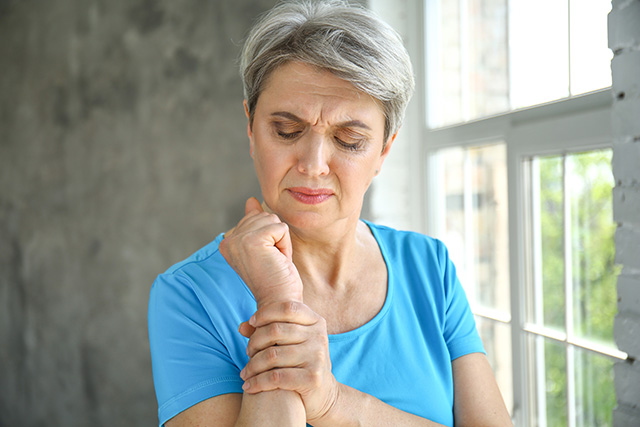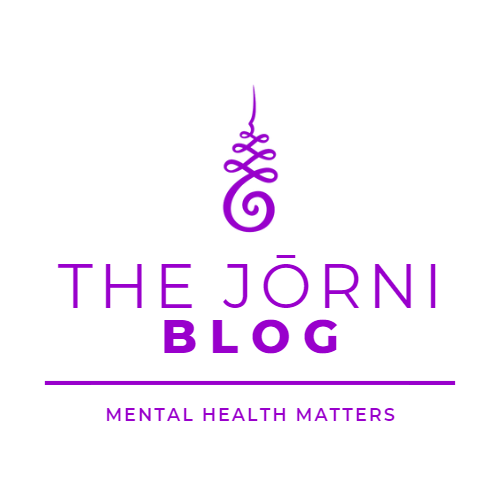Menopause
Menopause is a natural biological process that occurs when a woman’s reproductive years come to an end. It usually happens between the ages of 45 and 55. But it can happen much earlier as well. Menopause is defined as the period in which a woman has not had a menstrual period for 12 months. This means our body is no longer capable of conceiving.
During the perimenopausal years, menstrual cycles may become irregular, and hormone levels, notably estrogen and progesterone, may vary. This can cause symptoms such as hot flashes, night sweats, brain fog, aches and pains, weight problems, and mood swings.
It’s important to acknowledge that menopause is a natural biological phase, not an illness. Menopause symptoms can have a substantial influence on our quality of life, and there are a variety of therapy options available to manage these symptoms.
The menopausal journey is unique to each woman, with some women experiencing more severe symptoms than others.
On the podcast this week, I interviewed Jacqueline Rose. She is a Menopause Educator and Coach, Women’s Hormonal Health Practitioner, Yoga for Women’s Health Teacher and Therapeutic Yoga Teacher and passionate about women’s health and in particular, menopause.
“Our mothers were largely silent about what happened to them as they passed through this midlife change. But a new generation of women has already started to break the wall of silence.”
- Trisha Posner
Some women may experience menopause very early on because of a hysterectomy or other medical issues. And even though menopause tends to be swept under the rug and we are simply expected to deal with it, it is time to speak about it.
Modern Menopause
So, does the modern menopause journey look different than what our mothers and grandmothers experienced? I was excited to talk with Jacqueline about this topic to get a thorough understanding of menopause and the changes and symptoms that occur. The purpose is to educate and teach women about menopause and to equip them with the information they need to make educated health decisions. When I first started perimenopause, I thought something was very wrong with me. The physical ailments and the memory problems I experienced really scared me.
It’s important we discuss all aspects of menopause, such as the physical changes that occur, the hormonal changes that occur, and the many therapeutic choices available to manage symptoms. It helps us cope with menopause symptoms and we don’t have to go through this journey alone.

The blog article attempts to clarify some myths and misconceptions about menopause and to present a genuine and truthful depiction of what it’s like to go through menopause. Just remember that menopause is unique to each woman and that some women may suffer more severe symptoms than others.
Ultimately, I would like to empower women to take control of their health throughout menopause by providing them with the information they need to make informed decisions regarding their options. In many cultures and places this topic is still a taboo, but I felt the support and knowledge of other women has been invaluable on this journey. It is my hope that we can begin to create a modern menopause journey where women no longer have to be afraid or ashamed of what they are experiencing.
What Happens During Menopause?
The reduction in estrogen and progesterone levels causes a multitude of physical and emotional changes in our body throughout menopause. The following are some of the most prevalent symptoms and changes that occur with menopause.
Hot Flashes
Hot flashes and night sweats are two of the most frequent menopausal symptoms. They are caused by a drop in estrogen levels, which can make the body’s temperature regulation mechanism less effective. Hot flashes are brief bursts of intense heat that can induce sweating, a racing heart, and a flushed or red face. They can persist for a few minutes or several hours. They can happen, but they are most common at night, making it difficult to sleep. Night sweats are like hot flashes in that they occur at night. They can cause a lady to wake up sweaty and impair her sleep. This can make a lady tired and angry during the day.
Changes in Monthly Cycles
Women’s menstrual periods may become erratic as they approach menopause. This is referred to as perimenopause. A woman may experience changes in the length and heaviness of her cycles, as well as changes in the timing of her periods, throughout this time. This can make predicting when a period will occur challenging. Periods may become shorter and lighter as menopause approaches and eventually end entirely. This marks the end of your reproductive years and the beginning of menopause. The time between the commencement of perimenopause and the last menstrual period varies widely amongst women. Some women may go through perimenopause for several years, while others may only go through it for a few months.
Exhaustion
Fatigue and insomnia are frequent symptoms experienced by many women throughout menopause. They can be caused by a variety of circumstances, including a decrease in estrogen levels, alterations in circadian rhythms, and be exacerbated by other menopausal symptoms, including hot flashes and night sweats. Fatigue can make daily activities difficult, whereas insomnia can cause difficulty sleeping or staying asleep. These symptoms can coexist, resulting in a vicious cycle of exhaustion during the day and sleeplessness at night.

Mood Swings
Mood swings and irritability are unfortunately some of the more common symptoms of menopause. They can be caused by a decrease in estrogen levels, which can influence neurotransmitter levels in the brain, such as serotonin and dopamine. These changes might cause worry, despair, and irritation. Mood swings and irritability can also be caused by physical menopausal symptoms, such as hot flashes, night sweats, and sleeplessness. These symptoms can drastically affect your quality of life and make regular activities and work very difficult.
Brain Fog
Some women endure memory lapses and focus issues during menopause. This can also feel like brain fog. Brain fog, also known as cognitive impairment, is actually a pretty frequent menopause symptom. It is characterized by trouble concentrating, memory lapses, and mental clarity issues. The drop in estrogen levels during menopause can influence cognitive function, including memory, attention, and executive function. Estrogen plays a function in the maintenance of neuronal connections in the brain, and its deficiency can impair your capacity to absorb information and perform mental tasks. During menopause, some women may feel despair and anxiety, which can also contribute to brain fog. Brain fog can also be exacerbated by stress and a lack of sleep.
Other Symptoms
Hormonal fluctuations can cause weight gain and body shape changes, particularly around the belly.
As estrogen levels fall, the vaginal walls can shrink, dry, and become less elastic. This might cause pain and discomfort during intercourse.
Menopause can cause skin to become drier, thinner, and less elastic, and hair to become more brittle.
These symptoms can differ widely amongst individuals, and not all women will experience all of them. However, if symptoms are severe and negatively affect your quality of life, working with a Menopause Coach can make a world of difference.
Hormonal Changes During Menopause
Estrogen is a hormone that is essential to a woman’s reproductive health and wellbeing. The ovaries stop releasing eggs during menopause, and estrogen levels in the body decrease. As you can see from the list above, this drop in estrogen levels can have a variety of consequences for our physical and emotional wellbeing.
Besides these symptoms, a drop in estrogen levels can also affect our health in other ways. Estrogen plays a role in bone density and cognitive function and a decrease in estrogen levels can raise the risk of osteoporosis and cognitive impairment. The risk of osteoporosis rises as a woman approaches menopause and after menopause. It’s crucial to highlight that osteoporosis can be a silent condition, which means you may not notice any signs until you have a fracture.

Estrogen is essential for maintaining cognitive function, which includes memory, attention, and executive function. The drop in estrogen levels during menopause can influence cognitive function, increasing the risk of cognitive decline. Cognitive decline is the steady deterioration of cognitive capacities like memory, learning, and thinking. It can make it difficult to accomplish daily tasks like bill payments, following a recipe, or remembering appointments.
Estrogen is also involved in cardiovascular health, so a drop in estrogen levels can increase the risk of heart disease. After menopause, there is a drop in high-density lipoprotein (HDL) cholesterol known as “good” cholesterol, and a rise in low-density lipoprotein (LDL) cholesterol, also known as “bad” cholesterol. This change in cholesterol levels may raise the chance of developing heart disease. The drop in estrogen levels after menopause can also cause an increase in inflammation and the production of blood clots, further increasing the risk of heart disease.
Treatment Options
Hormone Replacement Therapy (HRT)
Hormone replacement therapy (HRT) is a treatment option that can help replenish your body’s decreasing levels of estrogen and other hormones throughout menopause. HRT can help with menopausal symptoms such as hot flashes, night sweats, vaginal dryness, and mood swings. It can also help with the prevention of osteoporosis and cognitive deterioration.
HRT is available in a range of dosage forms, including tablets, patches, gels, and creams. The type of HRT best suited for you would be determined by your specific needs and symptoms. HRT can be given for short-term or long-term use, but it should not be used as a long-term solution to menopause.
HRT has significant risks, including an increased risk of breast cancer, blood clots, and stroke. If you are considering HRT, it is important to speak with a healthcare provider and inform yourself about the benefits and potential dangers.
I will also note here that there are many non-hormonal choices for managing menopausal symptoms. Let’s have a look at some options.
Non-Hormonal Alternatives
Menopause symptoms can also be managed with non-hormonal treatments such as lifestyle changes and alternative therapy. These treatments can be used alone or with others, such as hormone replacement therapy (HRT).

There are also alternative therapies, such as herbal supplements and acupuncture, that can successfully decrease menopause symptoms. Acupuncture, a Traditional Chinese Medicine treatment, is a technique that involves inserting small needles into certain places on the body in order to stimulate the flow of energy, or Qi. I have personally found this to be an amazing option for treating hot flashes and weight issues.
Managing Menopause
Self-care is an important part of managing menopausal symptoms. As your body goes through significant hormonal changes, it is important to care for your physical, emotional, and mental wellbeing. Here are some suggestions for some self-love.
Social and Family Support
Support from friends and family might be helpful in coping with menopausal symptoms. A support system may provide a sense of understanding and validation, which is especially essential for women who are suffering symptoms like hot flashes, night sweats, and mood swings. Friends and family can also offer emotional support, which can help with anxiety and depressive symptoms.
Talking about menopause with friends and family can also help ease feelings of isolation and loneliness. They can also provide practical help, such as help with chores or transportation to medical appointments. If possible, open communication with friends and family could help them understand the changes you are facing and how they can best assist you.

Besides the support of friends and family, please don’t feel hesitant to seek help when you need it. It is true that many doctors are not trained specifically in women’s health and might not know much about menopause. But, talking to a menopause educator and coach can be very helpful. They can provide information, support, and help you manage menopausal symptoms.
Remember that menopause is a natural transition, so be gentle and patient with yourself. There are many techniques and approaches available to help with symptom management and you don’t have to suffer alone.
The Takeaway
Menopause can be an intensely difficult period for women, so it’s critical we communicate openly and honestly about symptoms, concerns, and treatment options. A healthcare practitioner can help you monitor for any health risks connected with menopause, such as osteoporosis, heart disease, and cognitive loss. But, doctors might not be specifically trained in women’s health or menopause.
If you feel you need more support and information, working with a Menopause Coach can be a fantastic option. They can advise you on how to manage menopausal symptoms and establish a specific treatment plan. They can also address your worries and questions about menopause and its consequences for your wellbeing.

We sometimes forget that menopause is a normal part of growing older and we don’t need to hide our symptoms or feel ashamed. And while menopause can cause many physical and mental changes, there are amazing alternatives available for symptom management.
Menopause symptoms can be managed with hormone replacement therapy (HRT) and non-hormonal treatments such as lifestyle changes and alternative therapies.
Working with a healthcare practitioner and a Menopause Coach to design a personalized treatment plan for your unique journey can be life-changing.
It’s also important to understand there is no “one-size-fits-all” answer for the menopause journey. Some women may find relief from a single therapy choice, while others may require a combination of treatments. During menopause, it’s also important to practice self-care and live a healthy lifestyle, as well as seek support from friends and family.
Menopause is a natural part of aging, and we should not be ashamed to talk about it and get the help and support we need!

